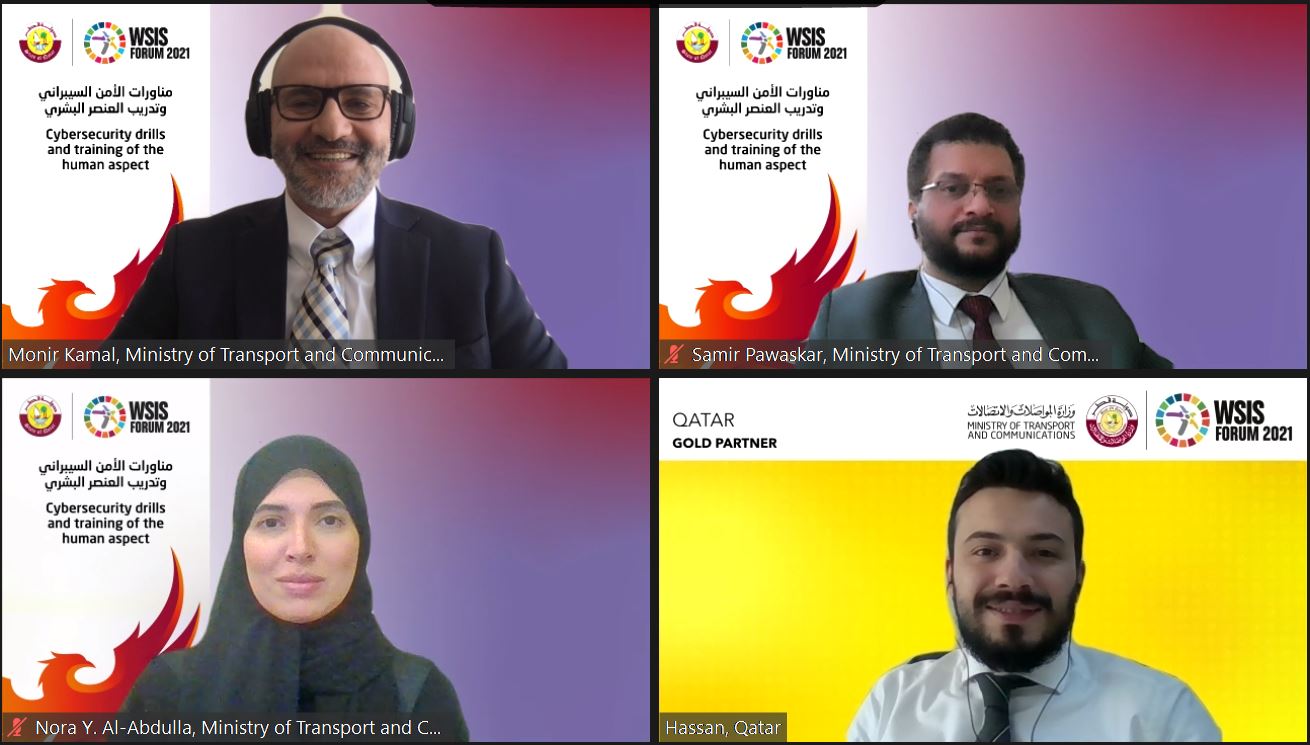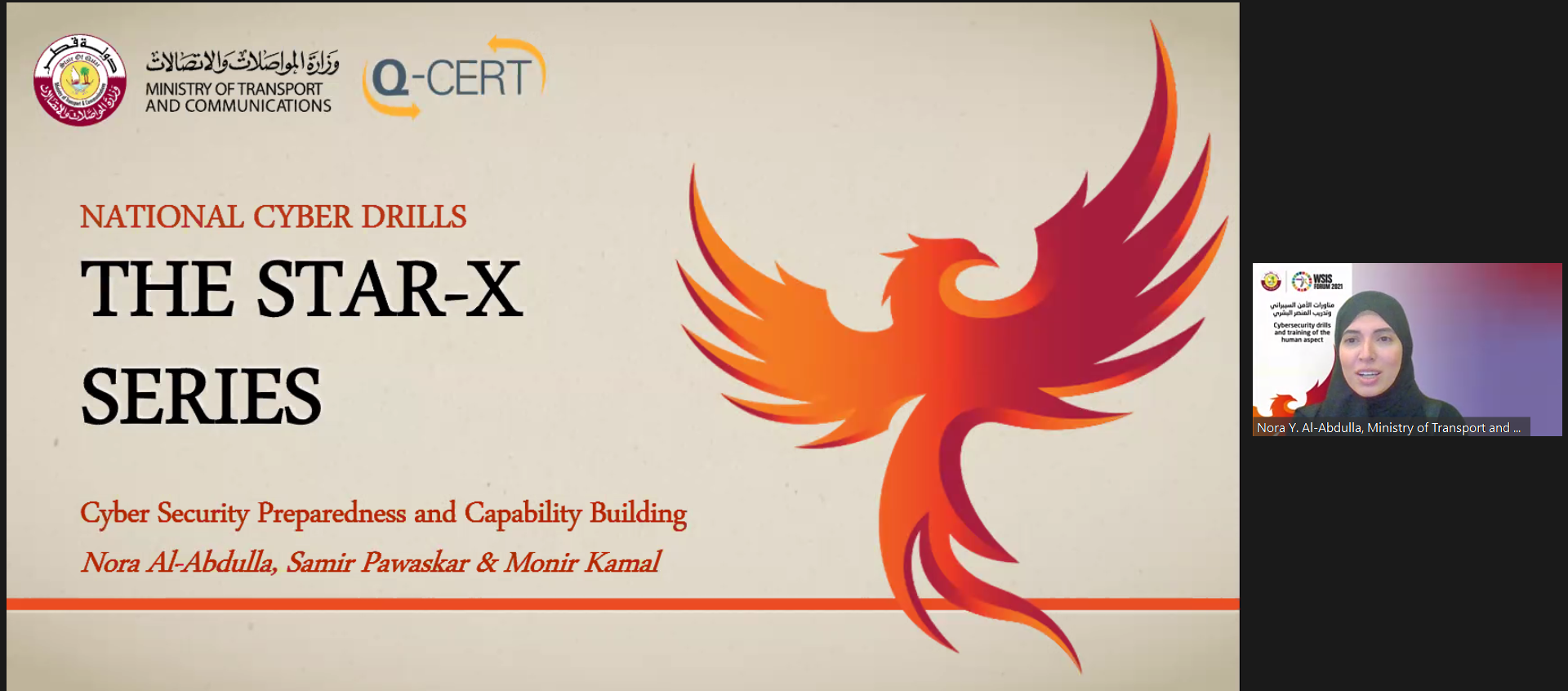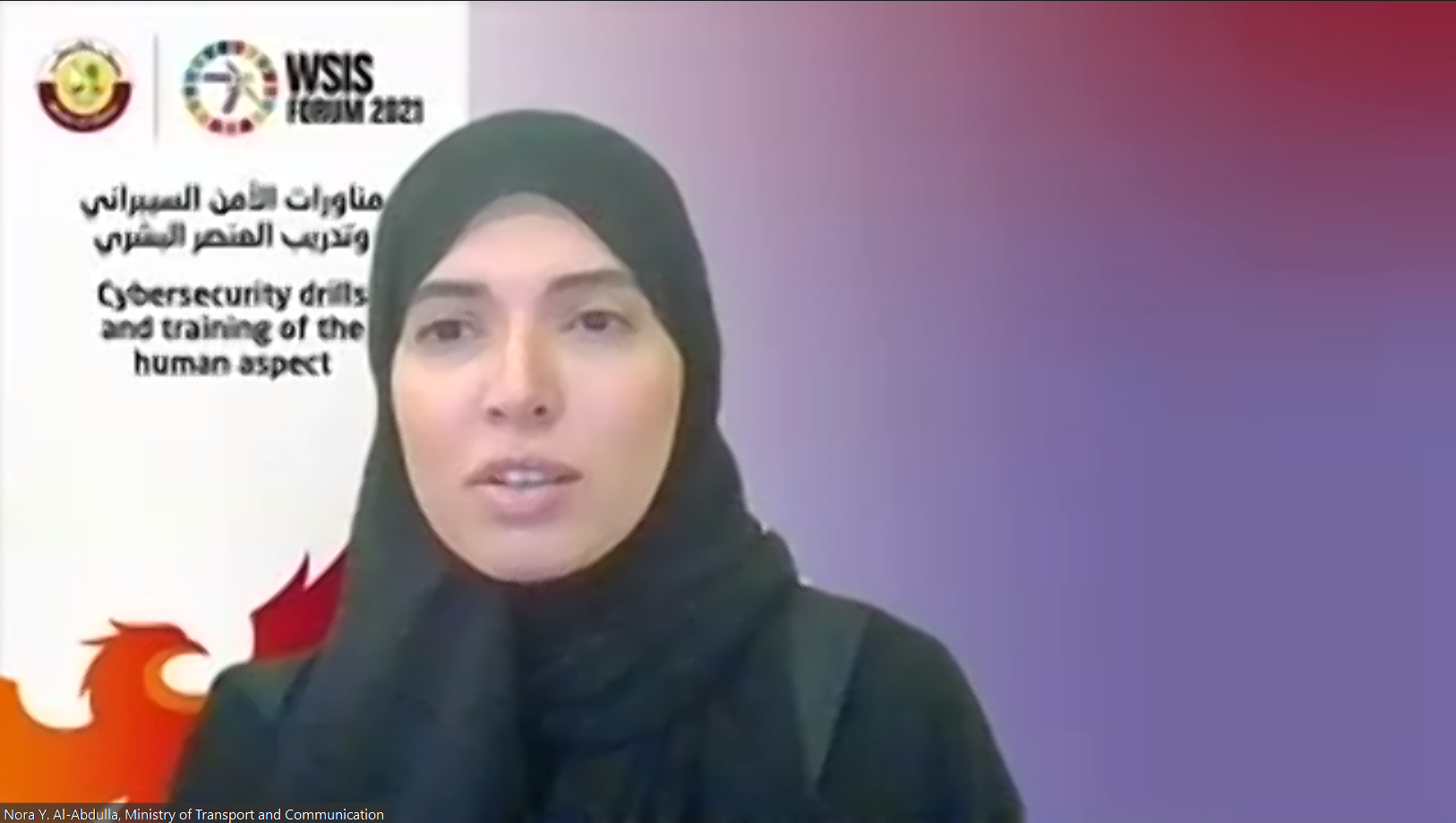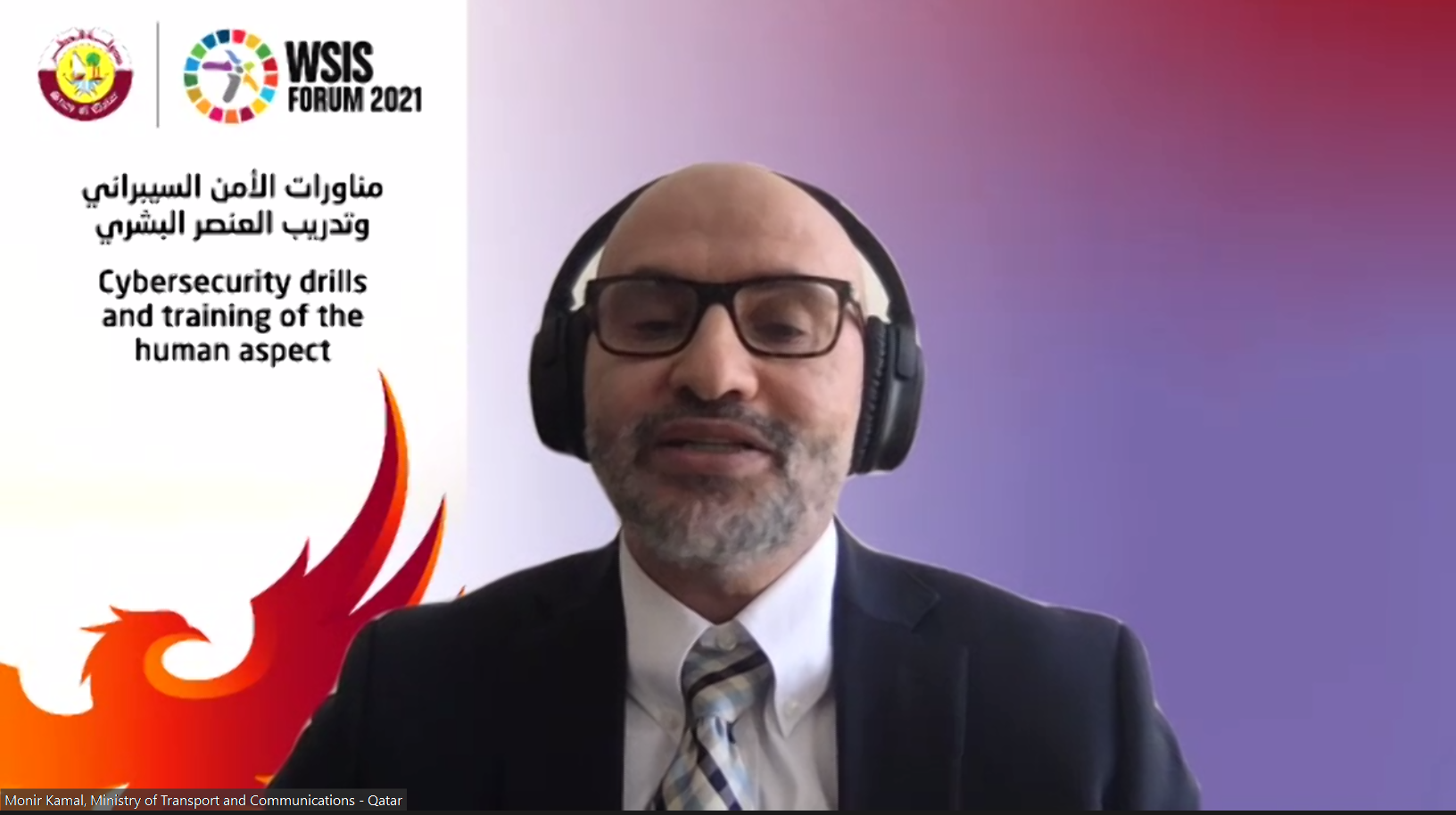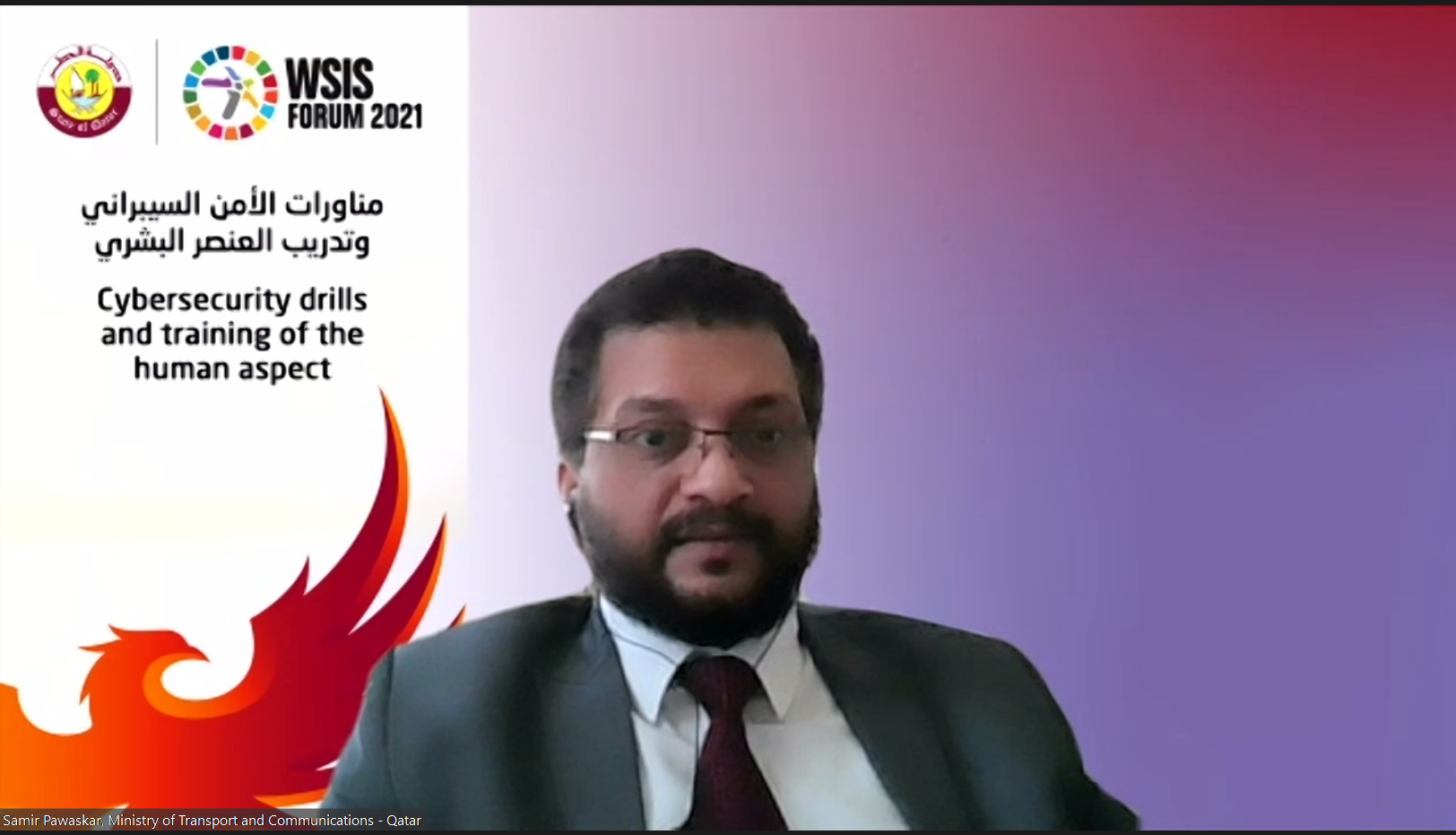Cybersecurity drills and training of the human aspect
Qatar
Session 290
Cyber Security Preparedness and Capability Building
Cybersecurity is an ever-important annually growing topic.
In this session, Qatar's Cybersecurity Agency within the Ministry of Communications and Transport will shed light on their Star-X program, which focuses on training the human aspect and capacity building.
The roadmap and success story will be shared, as they held the 8th continuous annual version of the event this year.
Nora Al-Abdullah is the Director of Critical Information Infrastructure Protection (CIIP) department at the Cyber Security sector in the Ministry of Transport and Communications. She holds a Bachelor of Science in Computer Engineering from Qatar University and a specialized Master’s degree in Strategic Business Unit Management from HEC Paris.
With more than 13 years of experience in this field, Nora started her journey in information security within Qatar's Computer Emergency Response Team (Q-CERT), on which she gained knowledge in threat analysis, incident response and training and awareness. All are experiences that enabled her to successfully participate in and then head National Cyber Drills.
Nora aims to be one of those that cause a paradigm shift in cyber security in the Middle East region.

Samir is an award winning, experienced information security professional with nearly twenty five years of experience, currently working with the National Cybersecurity program of Qatar. He is also a prolific speaker and a writer. He has spoken at various regional and international conferences and has published a number of articles in international and research journals and more recently co-authored a book.
Samir holds a Master in Business Administration from SMU, India and a Bachelors in Engineering (Electronics and Communications) from University of Mumbai. He also holds a number of certifications in data ethics, privacy, information security and business continuity.

Mounir Kamal is senior Information Security, and Risk Management Professional with a solid technical background and a highly analytical mind. Mounir has been involved within the information security field for the last 15+ years.
As much as Mounir is experienced and knowledgeable in various purviews in the information security sector, his preferable work is being a linchpin between business and the technical level using deep technical knowledge as well as strategic and tactical insights to see multiple steps ahead, oversee consequences and ultimately provide the best solution combining key elements from the information security, and IT risk management fields.
Mounir holds CISSP - ISC2 | GIAC Cyber Threat Intelligence - GCTI | GIAC Certified Forensics Analyst – GCFA | GOLD GIAC GICSP - SANS GIAC | IEC62443 |SABSA SCF - SABSA Institution | Certified Security Incident Handler CSIH - Carnegie Mellon University | Reverse Engineering Analyst (CREA) - InfoSec Institute | Certified Ethical Hacker (CEH) and Computer Hacking Forensic Investigator (CHFI) - EC-Council.
-
 C4. Capacity building
C4. Capacity building
-
 C5. Building confidence and security in use of ICTs
C5. Building confidence and security in use of ICTs
-
 C10. Ethical dimensions of the Information Society
C10. Ethical dimensions of the Information Society
-
 C11. International and regional cooperation
C11. International and regional cooperation
This program focuses on the human aspect of cybersecurity.
As such, Capacity Building, and the development of trust and confidence in the nation's ICT practice are important cornerstones that are supported by this initiative.
Also, increasing the cybersecurity capabilities will both directly and indirectly lead to a decrease in all unethical practices.
-
 Goal 5: Achieve gender equality and empower all women and girls
Goal 5: Achieve gender equality and empower all women and girls
-
 Goal 9: Build resilient infrastructure, promote sustainable industrialization and foster innovation
Goal 9: Build resilient infrastructure, promote sustainable industrialization and foster innovation
-
 Goal 11: Make cities inclusive, safe, resilient and sustainable
Goal 11: Make cities inclusive, safe, resilient and sustainable
-
 Goal 16: Promote just, peaceful and inclusive societies
Goal 16: Promote just, peaceful and inclusive societies
The safety of the State of Qatar from a Cyberspace perspective is crucial; which leads to a decrease in all unethical practices, in turn creating a just and peaceful society.
This program also aims to empower women, by rightfully considering them as an equal partner within this program and giving them the opportunity to flourish in the field of Cybersecurity.
